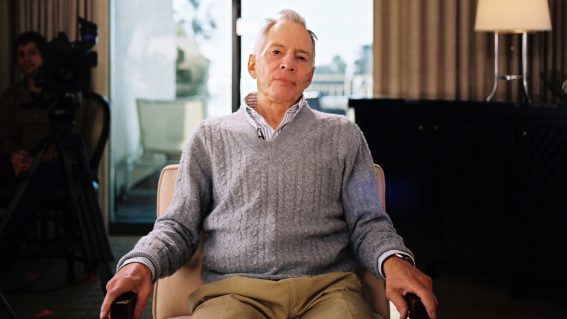The Endless review: a thrilling, low budget, Lovecraftian sci-fi loaded with big ideas


I hurried to see the science fiction thriller The Endless on the weekend, following recommendations from friends who extolled it as a vibrant, mind-bending example of big ideas on a shoestring budget. This was a matter of (relative) urgency, given the film – a succès d’estime – is on very limited release, likely to be squeezed out of cinemas soon by movies that cost more than 100 or even 1000 times as much.
The Endless arrives not long after writer/director Alex Garland’s ambitious sci-fi Annihilation, which was famously considered ‘too intellectual’ by one of its producers, thus skipping cinemas and going straight to Netflix in most parts of the world. There is an irony here: that Annihilation was ‘too intellectual’ to be seen on the big screen, yet the more cerebral The Endless, from co-directors Justin Benson and Aaron Moorhead, is currently enjoying an (admittedly modest) theatrical release.
This very compelling and well-crafted film follows two cult survivors who return to observe how the group they left has progressed. The directors play the two lead characters (assigned their own first names) and worked on the film in other capacities, Benson as screenwriter and Moorhead as cinematographer.
It begins ten years after brothers Justin (Benson) and Aaron (Moorhead) left Camp Arcadia, a ‘UFO suicide cult’ situated in remote Californian desert. The pair are doing it tough, living on instant noodles and disillusioned about the state of their lives. They are drawn back to the camp by a strange video tape sent by one of its members. The film’s colour pallette turns warmer upon their return, orangey and slightly sun-kissed, as if to evoke feelings of nostalgia.
Nobody at the camp seems to have aged a day, despite a diet comprising plenty of beer and joints. The group are easygoing and welcome the brothers back, though strange things are afoot. Occasional cryptic remarks are made about someone or something watching over them. Weird things are also, quite literally, in the air. Near the camp one formation of birds in the sky looks exactly – perhaps, unnaturally – the same as another. At night two identical full moons appear in the sky, which one camp member dismisses as a natural ‘mirroring effect’.
At one point the word “Lovecraft” is dropped in conversation. If the filmmakers hadn’t gone there first, the reviewers would have
At one point the word “Lovecraft” is dropped in conversation. If the filmmakers hadn’t gone there first, the reviewers would have. Annihilation is a little Lovecraftian also, in its fusing of science and cosmicism. Also in its suggestion – again put forward in The Endless – that humankind may constitute one small, perhaps primitive part of a vast and uncaring universe, populated by things that are greater and smaller than ourselves.
One shot in The Endless looks down on a patch of dirt with ants scurrying across it, implying that size – perhaps even godliness – is relative. Images captured from above are sprinkled throughout the film, from vision of noodles boiling in water to a boat bobbing on a lake. Are we watching something, or is something watching us?
Without the budget of Annihilation, which allowed the construction of a psychedelic forest comprised of strange creatures and fauna – products of an alien ecosystem mutating with our own – Benson and Moorhead had to choose more cost effective routes. The strange goings on in The Endless incorporate an element of time-bending (‘travelling’ is the wrong word, but the right ballpark), putting greater emphasis on concepts rather than compositions.
Following the story build its bold, Lovecraftian vision is a real buzz. The plot is dotted with small, thought-provoking revelations that have a spiralling effect, gathering momentum as the film tumbles towards sensational reveals. The directors explore interesting subtextual questions with clarity and purpose, including: do we really have control over lives, if we assign authority to something else, i.e. society or an ideological doctrine? And are all of us, in one way or another, stuck in seemingly infinite loops of our own making?
There is quite a bit to unpack, though I would not call The Endless ‘too intellectual’. It is a thrilling film in part because it is intellectual, though never pretentious or overblown. Can a film even be too intellectual in the first place? ‘Too intellectual’ is dangerously close to ‘too thoughtful’, a bizarre criticism to apply to any kind of art – least of all science fiction. If The Endless is ‘too’ anything, it’ll probably be ‘too seldom seen’ or ‘too overshadowed by louder, dumber, more expensive movies’. My friends were right. This fine film should be seen in the cinema, pronto.
Find times and tickets to The Endless













